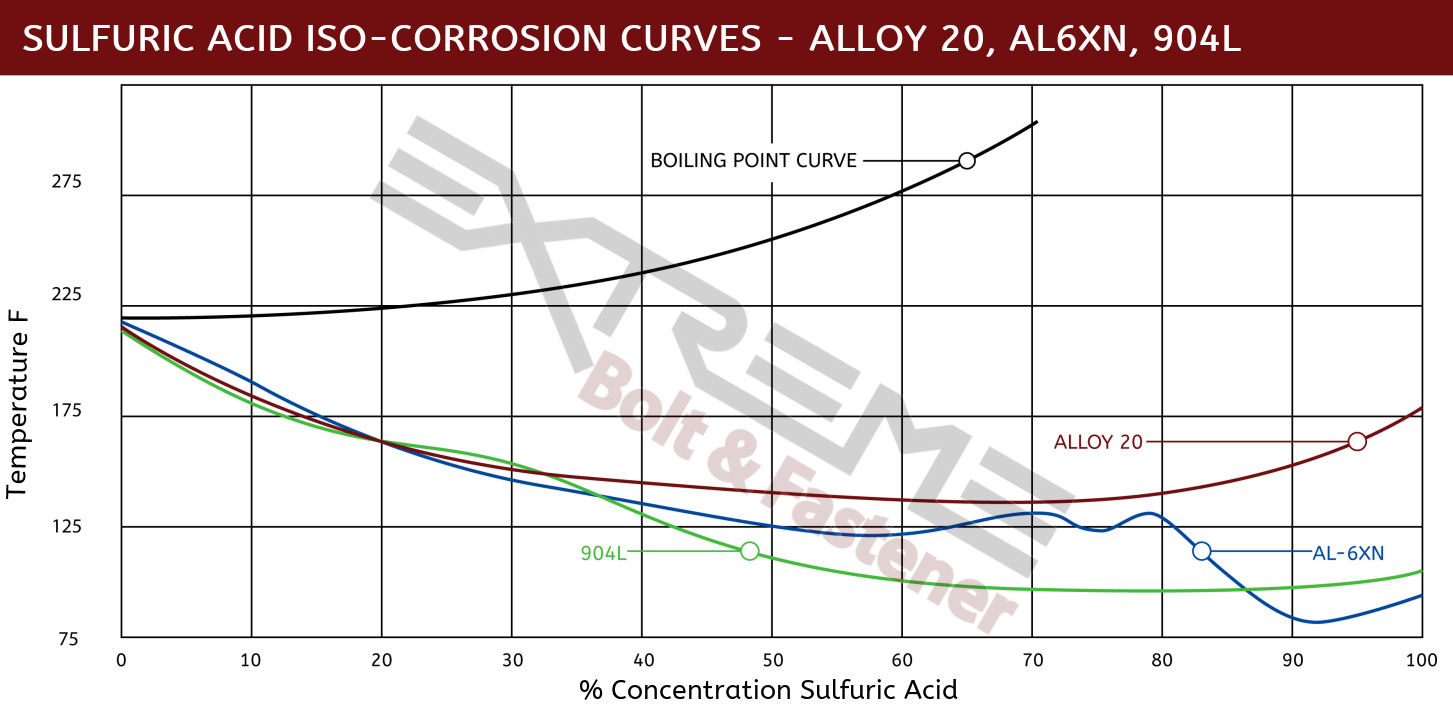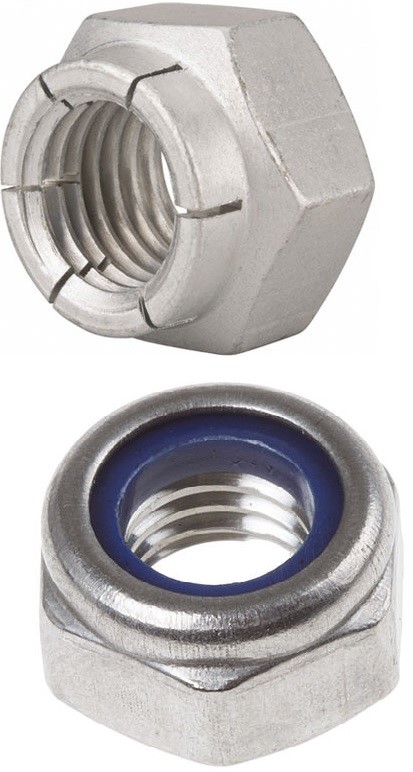 Good Mid-Range Corrosion Resistant Alloy
Good Mid-Range Corrosion Resistant Alloy
- Mid-range corrosion resistant resistant alloy
- Decent mechanical strength to 1000°F
- Alloy 20 chemistry and specifications
- Alloy 20 sulfric acid performance
- Lock lock nut features and benefits
- Alloy 20 Datasheet
Also known as Carpenter 20 and 20CB-3, Alloy 20 lock nuts offer users a combination of nickel, chromium, molybdenum, and copper which provides good general corrosion resistance. Alloy 20 lock nuts are best suited for mid-range corrosion use – better than steel alloys but not at the level of high performance nickel based alloys like Hastelloy C276. Alloy 20 is a nickel alloy that was specifically designed to withstand the harsh environment of hot sulfuric acid but also performs well in a variety of other acids. Alloy 20 lock nuts are an ideal choice when you don’t need the corrosion resistance power and price-tag of high performance nickel alloys like Hastelloy C276; but you need something that will give you more protection than 316 stainless steel or even a Super Duplex 2507 stainless steel.
Corrosion Resistance
Alloy 20 lock nuts provide good performance in hot sulfuric acid, specifically they offer good resistance to stress-corrosion cracking in boiling sulfuric acid at specific range of 20% to 40% concentration, as well as general sulfuric acid resistance. Alloy 20 offers solid acid protection and will perform better than Duplex or even Monel, but for high temperature and high concentration acids, you may need to look to Inconel or Hastelloy fasteners. In addition, Alloy 20 lock nuts also show useful resistance to phosphoric acid and nitric acid.
Key Corrosion Resistant Features:
- Good sulfuric acid protection at 20% - 40%
- Decent stress corrosion cracking, pitting and crevice corrosion resistance in chloride
- Resonable general corrosion protection
- Good intergranular corrosion resistance in the as-welded condition
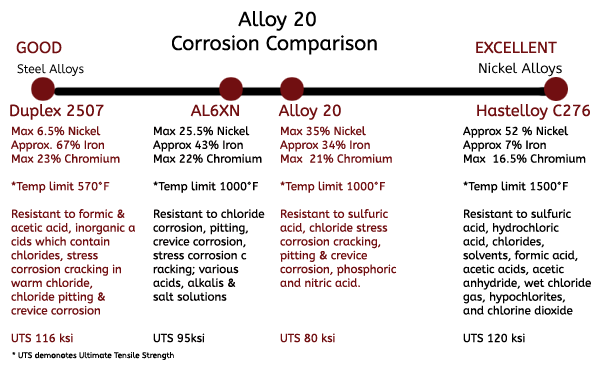
Mechanical Properties
• Ultimate tensile strength: 80 ksi
• Yield strength: 35 ksi
• Density: 0.292 lb/in.3
• Electrical Resistivity (RT) 651 ohm-cir mil/ft
• Elongation: 30%
Temperature
In addition to their corrosion resistance, Alloy 20 lock nuts also perform well at moderately high temperatures, with the ability to maintain their mechanical strength up to 1000°F.
Welding
Alloy 20 lock nuts are stabilized with Columbium to minimize carbide precipitation during welding. In addition it offers intergranular corrosion resistance in the as-welded condition.
Applications
• Power plants rely on alloy 20 lock nuts for flue-gas desulfurization
• Alloy 20 lock nuts are used to connect heat exchangers, mixing tanks, metal cleaning equipment, pickling tanks and racks, and piping in mid-range corrosive chemcial processing environments.
• Alloy 20 lock nuts help solve corrosion issues in food and dye production.
• Manufacturers of plastics and synthetic rubber also utilize alloy 20 fasteners.
Resources: Alloy 20 Torque Specs, Flange Dimensions, Flange Bolting Chart
Alloy 20 Nut Types: Hex Nuts
Alloy 20 Lock Nut Features and Benefits
An alloy 20 locknut resists loosening from vibrations and torque. One of the most common styles is a prevailing torque locknut. This kind of alloy 20 locknut has a prevailing torque feature which deforms elastically, preventing it from freely spinning like a standard nut.
The two most common and reliable forms of prevailing torque locknuts are the flexloc style and the polymer insert lock nut. A alloy 20 flexloc nut is all-metal in composition with a segmented collar that creates six “locking fingers,” that act as a spring. alloy 20 polymer insert lock nuts are often referred to as nylon insert locknuts, although various high performance polymers can be used for the screw threads to “bite into.” Both flexlock and polymer insert locknuts are available in both hexagonal and 12 point configurations.
All Metal Flexloc Lock Nut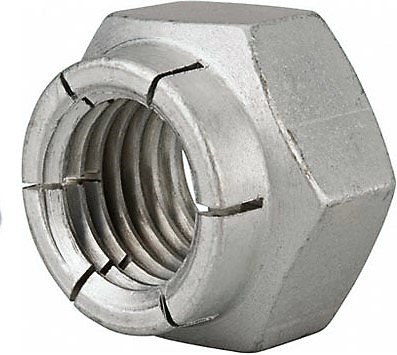 | 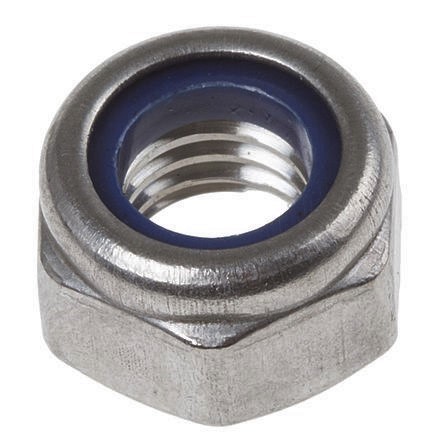 Polymer/Nylon Insert Lock Nut Polymer/Nylon Insert Lock Nut |
|
|
Other all metal lock nuts available include the alloy 20 stover and elliptical styles. Though these styles are often a cheaper initial cost, they are less reliable than the flexloc style. As these styles delivering less prevailing torque cycles and often result in more failures, the flexloc style is a better investment for both reliability and cost savings.
Alloy 20 Chemistry & Specifications
Alloy 20 Specifications: UNS N08020, ASME SA240, , ASME SB366, ASME SB462, ASME SB463, ASME SB464, ASME SB473, ASME SB729, ASTM A240, ASTM B366, ASTM B463, ASTM B464, ASTM B473, ASTM B729, ASTM BB462, ANSI/ASTM A555-79, EN 2.4660, , Werkstoff 2.4660, CN7M, DIN 2.4660

Alloy 20 Sulfuric Acid Performance
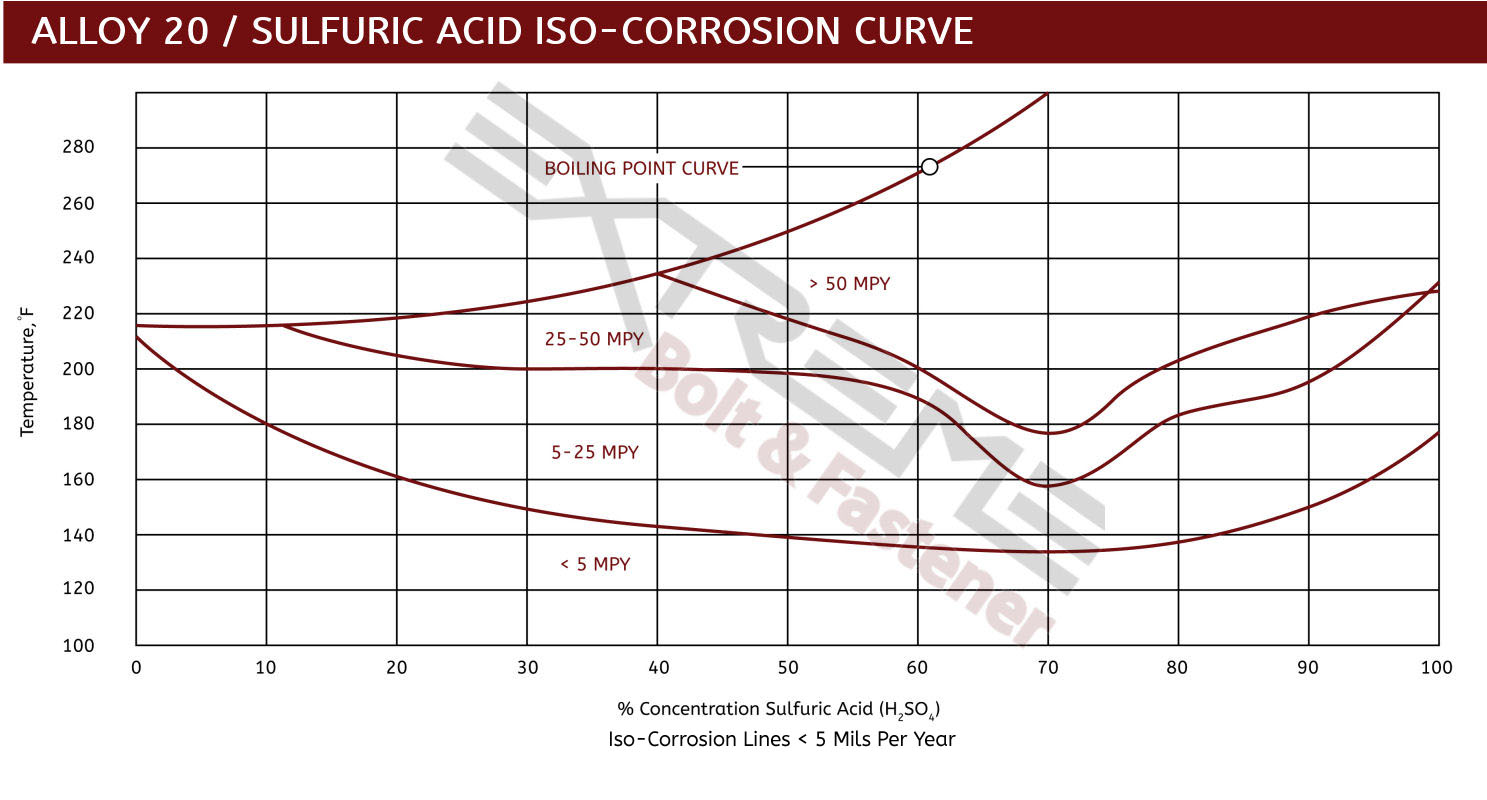
Alloy 20 Sulfuric Acid Comparison
